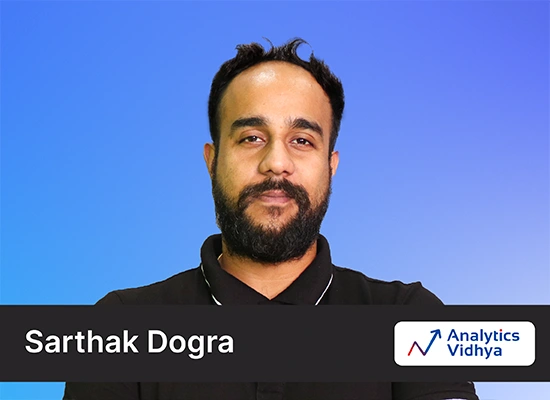Introduction
In the ever-evolving landscape of technology, Artificial Intelligence (AI) continues to captivate and inspire. As we navigate through 2023, TED Talks have been a beacon of insight, showcasing the brilliance and potential of AI through the voices of experts and visionaries. This blog post delves into the most thought-provoking TED Talks on AI this year, offering a glimpse into the future of this transformative technology.

Table of contents
- Introduction
- How AI Could Save (Not Destroy) Education
- The Existential Question
- The Duality of AI
- The AI Artisan
- When AI can Fake Reality, Who can you Trust?
- The Urgent Risks of Runaway AI — and What to do About Them
- War, AI and the New Global Arms Race
- The Inside Story of ChatGPT’s Astonishing Potential
- What happens when our computers get smarter than we are?
- The disappearing computer — and a world where you can take AI everywhere
- Conclusion
Also Read: Top 15 AI YouTubers to Follow in 2024
How AI Could Save (Not Destroy) Education
Sal Khan, the founder of Khan Academy, takes the stage to discuss how AI could revolutionize education. He envisions a future where personalized learning is not just a buzzword but a reality, thanks to AI’s ability to tailor educational content to each student’s needs.
Click here to explore this AI Ted talk.
The Existential Question
Eliezer Yudkowsky’s talk, “Will superintelligent AI end the world?” is a gripping exploration of the risks associated with AI. He urges the audience to consider the ethical implications and safety measures needed as we inch closer to creating superintelligent systems.
Click here to explore this AI Ted talk.
The Duality of AI
Yejin Choi presents a compelling argument in her talk, “Why AI is incredibly smart and shockingly stupid.” She highlights the contrast between AI’s remarkable capabilities and its surprising limitations, urging for a balanced understanding of the technology.
Click here to explore this AI Ted talk.
The AI Artisan
Creativity and AI intersect in a fascinating discussion about how algorithms are being used to generate art, music, and literature. The talk “In the Age of AI, What Can Originality Look Like?” challenges the notion of creativity being uniquely human.
Click here to explore this AI Ted talk.
When AI can Fake Reality, Who can you Trust?
We stand on the brink of a future where the proliferation of hyper-realistic deepfakes threatens to erode our trust in reality. Technologist and human rights advocate Sam Gregory, discusses the issue of deepfakes and if there is any way to protect our privacy.
Clcik here to explore this AI Ted talk.
The Urgent Risks of Runaway AI — and What to do About Them
In this thought-provoking TED Talk, AI researcher Gary Marcus asserts that our embrace of unreliable technologies poses a significant threat to these fundamental principles. He delves into the shortcomings of current AI systems, questioning whether we are unwittingly constructing tools that fuel misinformation. Urging an immediate reassessment, Marcus advocates for the establishment of a global, nonprofit organization dedicated to regulating technology.
Click here to explore this AI Ted talk.
War, AI and the New Global Arms Race
In this riveting TED Talk, technologist Alexandr Wang unveils a chilling glimpse into the emerging era of AI-powered warfare. From lethal drones equipped with facial recognition to armed robots and autonomous fighter jets, Wang navigates the uncharted terrain of this formidable landscape.
Click here to explore this AI Ted talk.
The Inside Story of ChatGPT’s Astonishing Potential
In this captivating TED Talk at the forefront of technological innovation, Greg Brockman, co-founder of OpenAI, delves into the foundational design principles that shape ChatGPT. Unveiling exclusive and unreleased plug-ins, Brockman takes the audience on a journey through mind-bending capabilities that have already made waves globally.
Click here to explore this AI Ted talk.
What happens when our computers get smarter than we are?
In this thought-provoking TED Talk, philosopher and technologist Nick Bostrom explores the rapid advancements in artificial intelligence. Research indicates that within this century, AI could reach a level of intelligence comparable to that of a human being. Bostrom raises a compelling question: Are we on the verge of witnessing the last invention humanity will ever need to make?
Click here to explore this AI Ted talk.
The disappearing computer — and a world where you can take AI everywhere
Get ready for a glimpse into the future of technology in this sneak peek from former Apple designer and Humane co-founder, Imran Chaudhri. Unveiling groundbreaking advancements, he envisions a world where Artificial Intelligence seamlessly allows our devices to “disappear.” In this exclusive TED preview, Chaudhri introduces his company’s cutting-edge product for the very first time, offering a tantalizing view of how it could revolutionize our interactions with both technology and the world at large.
Click here to explore this AI Ted talk.
Conclusion
These TED Talks have painted a multifaceted picture of AI, highlighting its potential to transform every aspect of our lives. From education to ethics, the discussions have sparked curiosity and caution in equal measure. As we reflect on these talks, it’s clear that AI’s trajectory is not just shaped by technology but by the collective will to harness it for the greater good. The future of AI is as much about the code we write as it is about the conversations we have and the choices we make. Let’s continue to engage, learn, and shape a future where AI amplifies our humanity.





